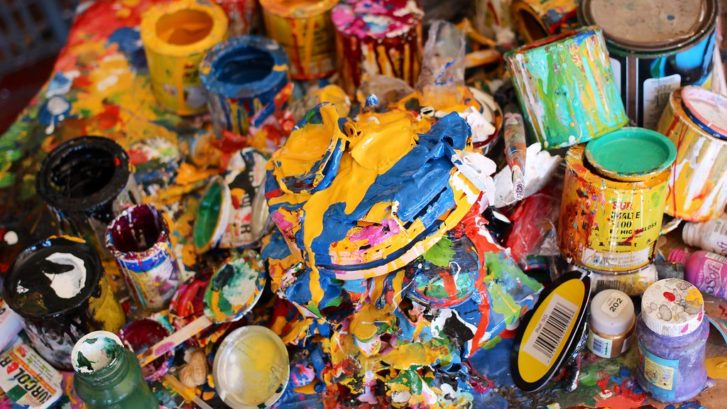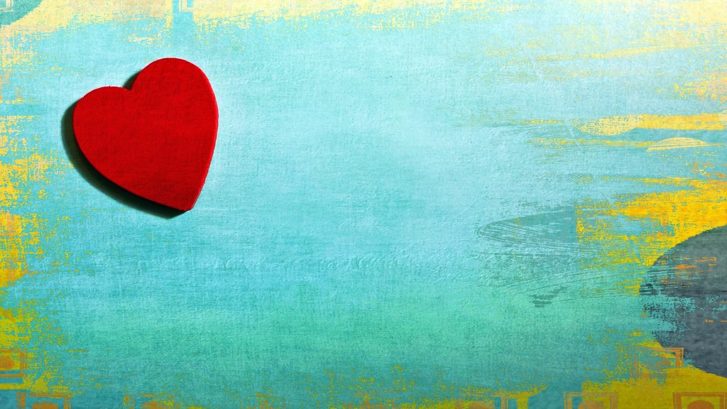Starting (Continuing) School – For kids big and small
I just left my son after spending the first hour of his public education experience with him. I was surprised to feel the immense emotions and tears that came flooding in as soon as I left him. When I was there, I was the rock. I was solid, reassuring, gently guiding and encouraging, acquainting him with the room, teacher, and other kids he’ll be spending over 1,000 hours of his life in. But not a cold heartless, detached rock. I could feel him deeply – his simultaneous apprehension and strength in being immersed in his new environment. Hearing all the advice handed down to me from other parents, I started to dismiss everything I felt as “normal” or just part of it, but as soon as I walked away, it hit me.
The teacher is good, kind, professional. She invited him and the other students to choose their own dot to sit on for whatever was next. I gave him one last hug and kiss for the day and he went over to join the other kids, but in his own way, at the far edge of the mat. Looking a little sad, a little scared, then – a little angry? It shocked me. I didn’t see it coming. But again, I dismissed it as “normal,” just part of the experience.
I’m tempted to just ignore it, pick up my smartphone, post only the sweet happy picture, move on with my
day and ignore these feelings. I could just call this “normal” and move on. But as I sit with these feelings, not avoiding but feeling fully and exploring with curiosity, they talk to me.
I realize that today marks the first real day of his experience in the “system” – the overburdened under-resourced system in charge of taking care of and educating our kids. The system that despite the level of skill, training, and care of the teacher, cannot possibly provide the same level of understanding, knowing, and individual connection that a sensitive child needs to feel safe and thrive.
I saw today how much like me my son is, and there are so many parts of me I wish he didn’t have to inherit. He is strong and capable of doing what is asked of him, but it comes with a cost. The cost of ignoring his feelings and his truth. The cost of ignoring and overriding what we really feel to “fit in.” The cost of separating a little more from our self.
As I dig deeper I feel into the parts of me that have been so wounded in school. Feeling shy, awkward, not fitting in, afraid to introduce myself to new people, wanting to play and have fun, but being unable to due to all the things I feel. I feel into the parts of me that know what I want, and feel it is not available there. As I feel in deeper I touch the places in me that were made fun of by other kids, the parts of me that felt like I don’t belong, the part of me that was made to feel bad by teachers when I spoke up for myself, and the parts that felt stupid, awkward, nerdy, out of place. Maybe it was just projection, but it felt as if I could see and feel all of those things in him. I felt like I had cursed him to relive all of the hard things I experienced in school.
In the moments before I left, we went out to get his water bottle from his back pack. He said he wasn’t really thirsty, but hungry. I told him it wasn’t time to eat now, that he would have to wait a bit. I felt him sink. It wasn’t the school or the teacher who committed the first act of violence, it was me. I was the one who took him there and I was the one asking him to ignore his needs to fit in with the system and obey the schedule.
I could go on and on about countless transgressions throughout my school experience that shaped how I show up in the world, but I don’t want to sound like a drama queen. You may think I’m blowing it out of proportion. (Heck, there is certainly a part of me that does.) Besides, what’s the big deal, I got over it. I found ways to make friends, develop coping strategies (some healthy, some not), and be successful. I made it out ok. Today I’m fine (mostly). But these experiences matter. They shape us – and don’t want to ignore these things so often brushed off and not spoken of.
Before I started really looking into myself with the lens of mindfulness, therapy, and personal growth I dismissed these things I felt and told myself they were no big deal and I was being too sensitive, dramatic, or even worse names I won’t repeat here. Of course I drank a lot from age 16-30+, and was unhappy, but hey, that’s what everyone else does too, right? But I’m sharing these words because they are my truth. And I’m sharing now, because I didn’t have the awareness, words, or people who would listen then.
I’m feeling tremendous grief. For all my past hurts, for all the ways I was rejected by others and the ways I rejected myself. I’m feeling tremendous sadness for introducing my son to the beginning of this system that has the potential to cause him so much suffering. But my point is not to dwell in the pain and sorrow, but to give words to and acknowledge it, as part of the experience of living in our world today. But my question is, “Is it necessary?”
So many parents feel mixed emotions on this day, and this is my attempt to name some of them specifically, at least from my experience. But my wish is not to dwell on the hurts of the past (mine) and the future (my son’s), but to acknowledge they exist and move on with a wish for something different for our children. I hope to give voice to those children that may look like nothing is wrong on the outside, but have been deeply impacted. And to forgive myself for my role in bringing my child there and dealing the first blow. I know that no matter how much I have tried to prepare him to do things in a better way than I did, he still has to have his own life and his own experience. And I hope that I can trust that when things are hard for him.
My wish is that the children, their needs, and their feelings are honored, even and especially if they are inconvenient to the adults. I hope and pray that they have the support they need to help them through the hard times, and that with the guidance of attuned parents, teachers, neighbors, friends, and family members they are able to have and remember more moments of joy, play, love, curiosity, innocence, and excitement about life. That our differences and awkwardness are treasured rather than made fun of. That our children are able to live lives that are better than we did, and we are the ones that empower and help create this for them. That children can learn to value and trust themselves, even when it is in opposition to others, especially those in authority. But not that they are reckless anarchists, rather they learn civility and respect of all people, especially those that are different than them and in opposition to them. My wish is that our children are given the love and support they need to not have to struggle, but to feel safe, welcome, and empowered to thrive in this world bringing their unique gifts and talents fully to the world. That they never have to question it, they can just be it.
I don’t know exactly how, but I know it starts with listening to the children, valuing them, valuing their feelings, treating them as equals rather than lower than us. By helping them rather than punishing them when they are feeling scared, angry, or in any way overwhelmed. By creating an environment where children can really be known, not just told what to do. It is harder, it takes more time and resources than we currently give them, and requires a radical paradigm shift, but don’t you think our children are worth it?
On this day, the first day of school, I hope are able to change ourselves and our systems to really (not just in a cheesy mission statement kind of way), but really truly authentically support, empower, and get out of the way, so our children can lead and create a better world, for all of us.
~chuck
What do you think? Better yet, what do you feel? What do you experience? Let’s continue the conversation! You can find me at www.innerlifeadventures.com or email [email protected]. Want to meet? Here’s how.
Chuck Hancock, M.Ed, LPC is a National Certified Counselor, Licensed Professional Counselor, and a Registered Psychotherapist in the state of CO. He has completed comprehensive training in the Hakomi Method of Experiential Psychotherapy, a mindfulness mind-body centered approach. Chuck guides individuals and groups in self-exploration providing them with insight and tools for change. He also incorporates nature as a therapy tool to help shift perspective and inspire new patterns.




